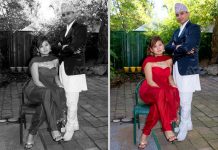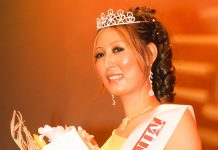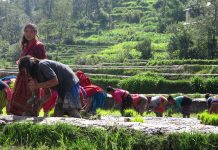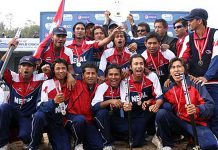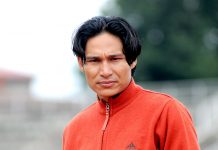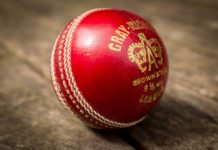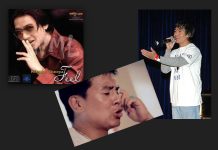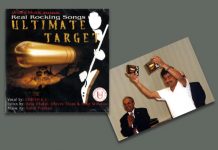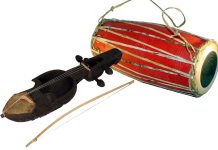Schooling is an important part of people’s lives. This journey of learning/experience can be enjoyable or boring depending majorly on teachers and your mates. I had subjects that I loved and those that I hated. In some, I was an “A” grader and in others “B” and “Cs”. It was not unusual to love a subject one year and hate it the next year.
I still wonder the reason for it! Maybe, it is the ability of teachers to generate curiosity -that determines such outcome. In fact, students would have had good idea of what lay ahead as soon as the teacher was assigned at end of each year. This opinion was always based on testimonials provided by senior students.
That year I was either in 6 or 7th standard- we were to be taught Nepali by Mukunde Sir. His real name was Mukunda Sharma meaning “Freedom Giver”. As Michael becomes Mike in the west Mukunda becomes Mukunde and for example Anup becomes Anupe!
He was famous for his story telling abilities. I had listened to his most popular story from a senior. Though I do not recall the whole story the sticking point was that it was about the sage who only fed on milk all his life. And he bled milk when cut!!!
I was pretty excited as Mr Jeevan (Life) Wagley, my previous Nepali teacher was mediocre. Though he could be thought provoking and interesting, he never made the effort! This judgement might be biased as I still hold grudge against him for picking on me all the time. He also assigned loads of hand writing work for home. It did not stop there-he compared my calligraphy to crow’s poo! This attracted classroom of giggles which was embarrassing. But deep down the heart I knew for sure I would free myself from this handwriting business- I am glad that I am writing this piece on word doc!!!
Occasionally, we were audacious enough to request him to tell stories. Every single time he successfully managed to ignore us. Mr Jeevan Wagley claimed that the Shivapuri hill would turn into flat fields if he ever told us a story. As we boys were big on soccer and having recently begun new subject -Agriculture, they would persist Mr Wagley, arguing such consequences would not be bad as imagined – the school could build more football grounds or land could be utilised to grow crops.
I also remember sharing with him our achievements in intra house soccer league. Sports were a big part of our school culture. We loved to see the teacher play or speak about sports. Mainly because it was rare for us to see Nepalese adults play sports. It is certainly due to lack of sporting infrastructure in the country, this has not changed much till date. However, Mr Wagley had his own reasons. When we asked, “Sir, did you play football when you were young?” He was spontaneous with his reply, “Oh yes! I did but I would not run after the ball, the way you do. I would stand at my position with one arm folded and other scratching my head- looking at my mates in utter disbelief!” Why sir? He would add, “I would be trying to figure out why 21 other intelligent boys would run after an inflated leather pouch in madness. And now my students do the same, I have not understood this mystery till date. I only kicked if the ball rolled right on my foot!”
This year will be different, I thought. A teacher who did not assign hand writing to take home and loved telling stories. Later, I also learnt that he was a published writer and was philosophical in his approach. He would tell stories read passages, poems and provide his opinion and understanding -this was the interesting part! I also enjoyed pondering on the message and learning it had to offer. But I hated writing it down for submission and being judged on it.
One of the stories he told us has had a lasting impression on me. It is a story I have shared with many. I do not know if it was his original work or a chapter from the syllabus. I have interpreted this story in many ways in various stages of my life. This is the only home work from my school that I remember and still enjoy working on. I still argue, think, rewrite it in my mind and submit it to myself or discuss it with good mates.
I advise you to read this when you have ample time to chew the message as food for thought. Read slowly visualise each scene. If necessary, do not hesitate to pause and read further. I agree with that wise man who rightly said, “It’s the journey that counts and not the end.”
The title of the story is ASHA KO THANDRO-Thread of Hope or expectation!
Imagine or visualise the following: You are sitting by the edge of a beautiful river. The atmosphere is serene- tuned to the waves of flowing water and to the singing of birds and insects. The sky is painted orange, camel humped hills dominated the back drop, tall thick and lush green trees scattered sporadically. Bamboo grass covers the edge of the river .Pleasant breeze brushes your face.
As you sit there in admiration of the moment, you notice a moving log- like object. It is a crocodile! Occasionally, it raises its head that gives you an indication that it is a huge monster. It is now resting underneath the shadow of branches falling on the river. On examination of the branch, you notice a huge hive of honey bee right above the croc. You also spot a rope dangling from the branch next to the hive into the river. You think, “Maybe the crocodile tied that rope to fetch some honey.”
As your eyes are glued to the tree your nose is stimulated by a burning smell. Your visual and sense of smell marries, as you see a man crawling on that branch horizontally protruding from the edge. He carries a long stick which is burning at the top. As he points it towards the hive- the sky is covered by swamp of fleeing bees. You hear them humming even after they were out of sight. Hunter wastes no time and begins to collect the honey.
Next thing you notice is that the hunter is losing his balance. He struggles to reposition but regardless of his efforts, he only manages to avoid falling into the water. He is now dangling on to the rope. As he swings to the rope and screams in fear, the crocodile beneath raises as if to its alarm. Honey hunter regains his calm as the jerk from the fall settles. In contrast, the monster in the water is getting very hysteric. It continuously jumps out of the water to bring down the hanging object and claim back its territory. The vibe of the atmosphere changes in an instance-the birds nesting in the bushes fly away in groups, raising alarm of danger they perceive from the big splashes.
Contrast to your expectations hunter surprises you with his calm. He seems to focus all his efforts to climb back. Irrespective of him calm, continuous efforts and focus, he remains dangled. You want but cannot help as uncross able strip of quick sand separates you and the tree. In addition the nearest help is hours of walk away.
Time is running out as huge amount of energy is being spent just to hang on. The stress level s is high as the crocodile awaits his fall. Hunter does not move but appears calm. He must be regaining his energy before he attempts another climb, you assume! The persistence of the hunter to climb back is matched with the willingness of the crocodile to wait for the fall of his prey. The battle between the hunt and hunted is building up both at physical and psychological level.
What happens next is purely out of your imagination. The paradigm of this climax rises exponentially!!! Scratching your head and jaws dropped, you watch in disbelief -as you notice a huge mouse chewing on the rope. The hunter notices the same and tries to shoo the mouse off but all in vain. Though your eyes are still glued to the present your mind anticipated the future-You see the colour of the water changing red. Nevertheless, the hunter had a different plan-he was dangling gently on the rope with his face towards the skies, mouth wide open deeply curving his back. You assume he is trying to scare the mouse off and is also aiming his mouth at the drips of honey falling from the bee comb-killing two birds with the same stone! …………..
Mukunde Sir paused for couple of minutes providing us time to absorb the story and proceeded to declare, “This is your homework. Your job is to elaborate and explain what you understand from this passage!”
I have interpreted this passage in many ways but the past does not matter. I will share with you what it means to me today. This story signifies the importance of expectation, hope for a better outcome, faith to overcome, courage to hang, being calm, focused and alert of circumstances surrounding you. I can go on and on but the most important thing is….. WHAT DOES IT SIGNIFIES TO YOU?
Sometimes, I take a step further convincing myself, maybe the home work was to complete the story too!!!
In my imagination the story could only end this way…… As he swinged on the rope, he scares the mouse away. He patiently swings and aims the dripping honey into his mouth; the sugar hit provides him instant energy to climb back.
Being fully in control and back on the branch he slowly crawls to collect the honey comb. Carefully he tucks the comb into a bag hanging from his back. Gently and with much care the hunter climbs down. Then he takes good time to gaze at the tree, river, rope and the crocodile in contemplation. Finally, he licks his hands covered in honey as he disappears into the bushes. I lay there in the same posture. The serenity returns and mouth is filled with sweetness of honey.
HOW WOULD THE STORY END in your terms?
Hang on, do your part and then expect!
– Anup Bhandari
Anup Bhandari, is the CEO of Nirvana Groups specializing in events, travel and imports. He is based in Sydney, Australia. He is also a motivational speaker and a published writer. He can be reached via email at anup.anupbh@gmail.com



